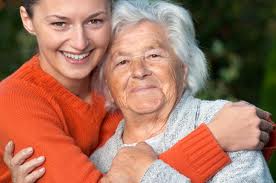I had the good fortune recently to meet Jennifer Muskat, the Director of Client Services for San Diego Home Care Assistance. She shared some helpful perspectives on the importance of geriatric care management services for older adults who need emotional support.
“The physical obstacles that your aging parent or loved one encounters in old age are often the most noticeable. While you can easily observe their struggles with walking or daily chores, it is much more difficult to recognize, understand and empathize with the emotions they experience on a day to day basis.
Your elderly loved one will be forced to deal with a handful of life-changing events as they age. Retirement, forfeiting the right to drive, and the loss of a spouse, sibling or close friend are just a few examples of inevitable changes that accompany aging. Without emotional support from family members during life’s new and unfamiliar events, seniors become vulnerable to depression and often suffer from a decreased quality of life.
As an adult, your sense of worth comes from your ability to provide for your family, perform your job well and most importantly, function as an independent individual. Whether from frailty or age-related illness, seniors lose these abilities, resulting in an increased dependency on their adult children. When this role reversal occurs, many seniors experience feelings of worthlessness and a lack of self esteem. Becoming dependent on their children, who once relied on them for everything, is difficult to cope with emotionally.
When neglected, these negative feelings can result in depression in seniors. They feel alone and helpless and that no one understands their situation. To ensure the health and wellbeing of your loved one, it is crucial that you are aware of how your loved one may feel. If they seem withdrawn, upset or have just suffered the loss of a close friend or family member, take the time to talk with them. Listen with patience and compassion and try not to criticize their feelings.
By letting your elderly loved one know you are by their side and are available to offer emotional support, you can help combat depression and enhance their overall happiness and quality of life. Also recognize that seniors become socially isolated in their later years and encourage your loved one to pursue new hobbies and stay in touch with old friends. Participation in these activities offers another channel for emotional support.
We often do not look beyond the physical ailments of our aging parents and fail to provide the emotional support and encouragement they once provided us as children. However, it is never too late to help. Reach out to your elderly loved one and let them know you are there for them as they enter this new stage of life.”
Jennifer Muskat is the Director of Client Services for San Diego Home Care Assistance. She offers geriatric care management services as an advocate for senior health and wellness. By constantly developing new programs, she ensures Home Care Assistance caregivers can provide optimal quality of life for senior clients.
Charlotte Bishop is a Geriatric Care Manager and founder of Creative Case Management, certified professionals who are geriatric advocates, resources, counselors and friends to older adults and their families. We provide elder care services to those in metropolitan Chicago. Please email your questions to ccbishop@creativecasemanagement.com.





